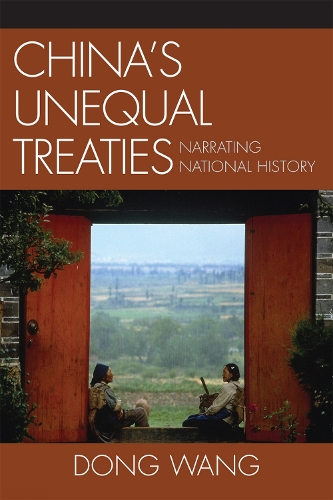
China's Unequal Treaties: Narrating National History
(Paperback)
Publishing Details
China's Unequal Treaties: Narrating National History
By (Author) Dong Wang
Bloomsbury Publishing PLC
Lexington Books
29th April 2008
United States
Classifications
General
Non Fiction
320.951
Physical Properties
Paperback
190
Width 153mm, Height 230mm, Spine 14mm
286g
Description
This study, based on primary sources, deals with the linguistic development and polemical uses of the expression Unequal Treaties, which refers to the treaties China signed between 1842 and 1946. Although this expression has occupied a central position in both Chinese collective memory and Chinese and English historiographies, this is the first book to offer an in-depth examination of China's encounters with the outside world as manifested in the rhetoric surrounding the Unequal Treaties. Author Dong Wang argues that competing forces within China have narrated and renarrated the history of the treaties in an effort to consolidate national unity, international independence, and political legitimacy and authority. In the twentieth century, she shows, China's experience with these treaties helped to determine their use of international law. Of great relevance for students of contemporary China and Chinese history, as well as Chinese international law and politics, this book illuminates how various Chinese political actors have defined and redefined the past using the framework of the Unequal Treaties.
Reviews
This is a perceptive study of a vitally important topic. Dong Wang is less interested in the unequal treaties as such than in the range of discourses (moral, legal, and rhetorical) they have elicited over the past century and the tie-ins between these discourses and Chinese politics and nationalism. The book is essential reading for anyone interested in the historical underpinnings of China's current view of the world and its place in it. -- Paul A. Cohen, Fairbank Center for East Asian Research, Harvard University
Provides a new perspective for viewing unequal treaties rhetoric as a dynamic concept linked up with the construction of national identity. -- Samual Chan * The China Journal *
I would recommend the book to my students. -- J.Y. Wong, University of Sydney * The International History Review *
This insightful book shows masterful control of a wide range of Chinese and Western sources, and spans the mid-nineteenth century to the present in an interpretive tour de force. Historians of modern China will never again look at the Unequal Treaties in quite the same way. In analyzing and interpreting the construction and then the contested discourse centered on these treaties, and what they came to mean for almost a century of symbolic importance to Chinese nationalism, she has given us a fresh look at an unexamined but central theme in the changing dynamics of Chinese visions of their own modern history. -- Daniel Bays, Calvin College
Author Bio
Dong Wang is distinguished professor of history and director of the Wellington Koo Institute at Shanghai University since 2016, a Chatham House member, and a research associate at the Fairbank Center of Harvard University since 2002. Her books include The United States and China: A History from the Eighteenth Century to the Present and Longmen's Stone Buddhas and Cultural Heritage.
